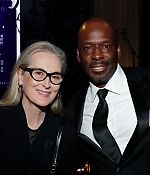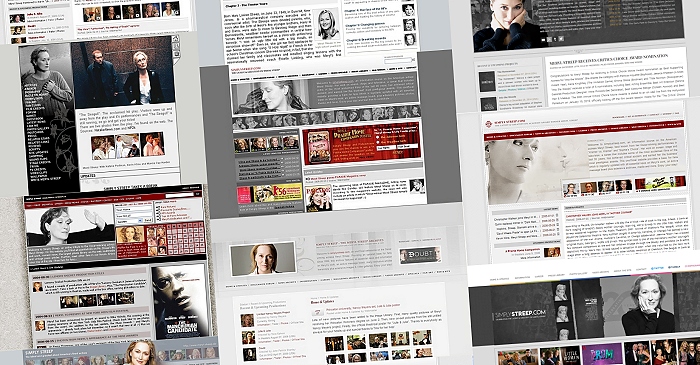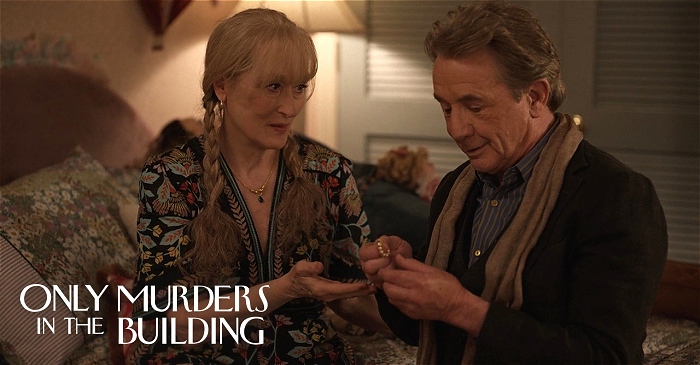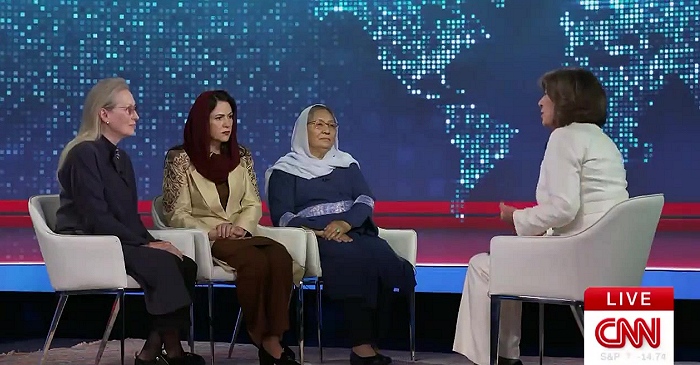
|
The Nun vs. the Priest
Newsweek ·
November 08, 2008
|
The priest abuse scandals are all too familiar now, but in 1964, when “Doubt” is set, few people dared to speak out. Meryl Streep plays Sister Aloysius, a Catholic school principal convinced that Father Flynn (Philip Seymour Hoffman) has molested a student. We asked Streep, Viola Davis, who plays the boy’s mother, and writer-director John Patrick Shanley to talk about the weighty issues that form the backbone of their film, though we started them on a slightly lighter note. Meryl, how did you like playing a nun?
STREEP: There was an enormous attraction. I love the idea that there are these meals we prepare this day, there are candles we light this day—all these markers. They give us comfort in the chaos of the universe. You’re a part of that team—the uniform of a nun is like a team jersey—and we all like that. I also found it interesting because it’s sort of the second female boss I’ve played in a short time. People talk to me about “The Devil Wears Prada” and about the stern editor, and now I’m the stern headmaster. We have a very, I think, ambivalent attitude about women in power.
SHANLEY: People have a very particular conception of what a nun is. That they’re strict, and small-minded and funny.
STREEP: Not funny, they’re not making jokes with you—they’re comical.
SHANLEY: They’re comical. They’re not in on the joke. And the film starts with that kind of archetypal nun, and then gradually you realize that your preconceived notions about what a nun is are being deterred one by one, as she becomes a more and more complex character. The same is true of the priest. You have this preconceived notion either that all priests abuse children or that the whole thing is wildly overblown and virtually all the priests were quite virtuous people. I welcome anybody coming to the story with a big precedent, which I hope to erode by making them pay attention to the very specific things about these people as individuals.
DAVIS: For me, Catholicism was such a sense of community and belonging and identity. I had nothing growing up. We were the first black family in our Rhode Island town. We were on the periphery. And to see all my friends in their white little first communion dresses, looking so cute and going to catechism—it was fabulous to me.
SHANLEY: I think the great attraction that Viola is feeling, to be presumptuous, is community—she needs community, and I think that that is one of the great deficits in modern life. Now the Catholic Church has its faults, but these dioceses, these church schools, these centers, provided a gravity which kept people from flying off into outer space. And we haven’t really yet come up with a great substitute. The best we have is the Internet, that’s the new community. I mean, Meryl, do you suffer from a lack of community yet?
STREEP: I don’t know.
DAVIS: Or is it just that you don’t care?
STREEP: No, I mean I guess I’m in awe of and in love with what I don’t know. All the certainties that are embedded in doctrines—I understand the solace they provide, but in a way, they also, for me, form a kind of fence that divides us from each other. I am pulled toward the ineffable and I’m trying to conceive why we exist and is there a greater purpose. But I’m a mother, and I have a purpose, and I have a place, and I deeply resent the idea that if you’re not a member of a church, temple, ashram, synagogue or—what else is there?—that you are somehow denying your children the meaning of life. I have a deep reverence for life. I feel I’m a deeply moral person. But often religion is a club out of which people are excluded.









